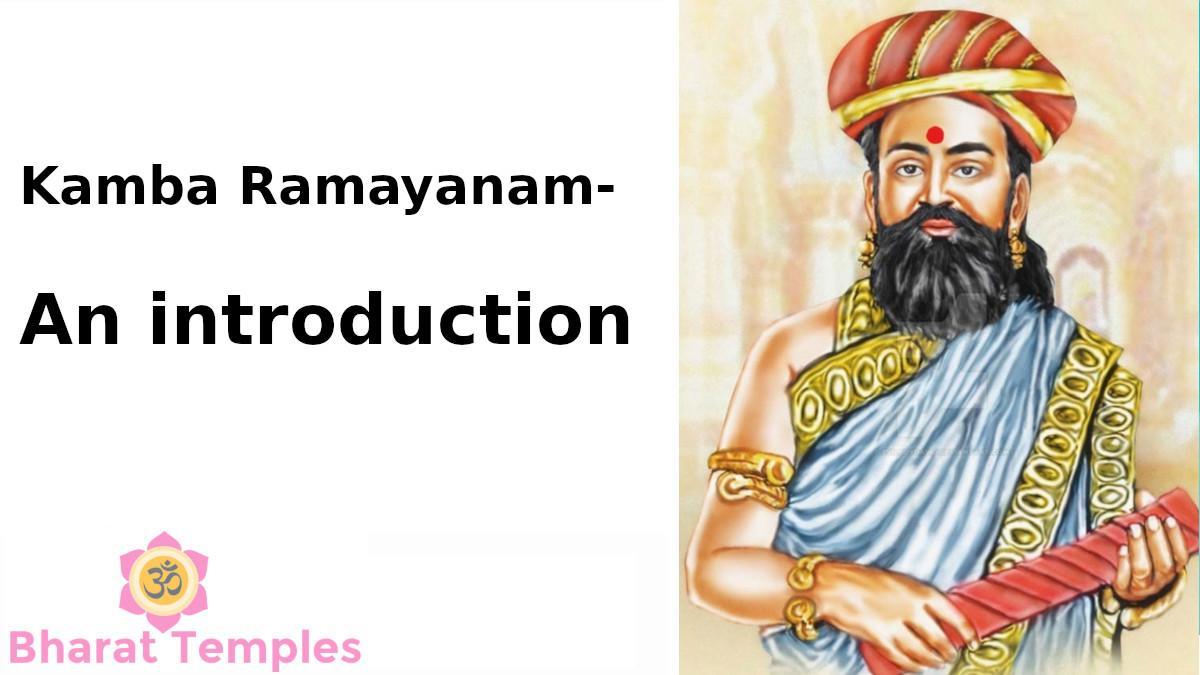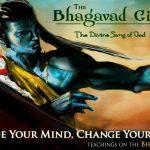Ramavataram, popularly referred to as Kamba Ramayanam, is a Tamil epic that was written by the Tamil poet Kambar during the 12th century.
The book is divided into six chapters, called Kandam in Tamil. The Kandams are further divided into 123 sections called Padalam (படலம்) in Tamil. These 123 sections contain approximately 12,000 verses of the epic.[13]
- Bala Kandam (Chapter: Childhood)
- Ayodhya Kandam (Chapter: Ayodhya)
- Aranya Kandam (Chapter: Forest)
- Kishkindha Kandam (Chapter: Kishkindha)
- Sundara Kandam (Chapter: Beautiful )
- Yuddha Kandam (Chapter: War)
Based on Valmiki’s Ramayana (which is in Sanskrit), the story describes the life of King Rama of Ayodhya. However, Ramavatharam is different from the Sanskrit version in many aspects – both in spiritual concepts and in the specifics of the storyline. This historic work is considered by both Tamil scholars and the general public as one of the greatest literary works in Tamil literature.
This epic is read by many Hindus during prayers. In some households, the entire epic is read once during the Tamil calendar’s month of Aadi (mid-July to mid-August). It is also read in Hindu Temples and other religious associations. On many occasions, Kambar talks about surrendering to Rama, who is a manifestation of Vishnu himself.
The chapter Sundara Kandam is considered very auspicious and is the most popular. The chapter talks about the hardships faced by the main characters in the epic, their practice of restraint, and their hopes for a better tomorrow.
On this website, we will present an English translation of Kamba Ramayanam verses. The entire book is translated by By P.R.Ramachander. A message from P.R.Ramachander.
Without any doubt whatsoever, the story of Rama was popularized by the Ramayana written by Valmiki. This has been translated into almost all the main languages in India. Kamban (who is supposed to have lived between 1180-1250 AD) one of the greatest poets of Tamil Nadu translated it into Tamil. He preferred to call it Ramavatharam(the incarnation of Rama) . In this great job, he received the support of Thiruvennai nallur Chadayappa vallal, a great philanthropist who lived in Tamil Nadu at that time. Kamban who admired this Vallal mentions his name once in 1000 verses in his book. Kamban did not do a literal translation of Valmiki Ramayana. He condensed it a lot , while adding some portions of his own. While Valmiki’s great epic consists of 24000 verses, Kamaban’s translation only contains 12000 verses. Though he adopted the six-book (Kandam) concept of Valmiki, he has not adopted the Sargam concept of Valmiki. He has divided the Kandas into Padalams and his Padalams are not direct translations of the Sargams of Valmiki. His book has only 123 Padalams. Kamban also did not adopt the story of Valmiki verbatim and made changes to the story. There is a folk story that The entire Kamba Ramayanam was written by Lord Ganesa as per his dictation.
I have done this translation based on the great commentary in Tamil published by the Kamban trust by a group of 16 experts led by Professor Aa.Sa.Jnanasambandan in 8 volumes. I am deeply indebted to this great trust and great author.
By P.R.Ramachander
FAQs
Kambar or Kavichakravarthy Kamban (1180–1250) was a medieval Tamil poet and the author of the Ramavataram, popularly known as Kambaramayanam, the Tamil version of the epic Ramayana.
Valmiki Ramayana and Kamba Ramayanam are two versions of Ramayana written in the Sanskrit and Tamil languages respectively. … Kamba Ramayanam is originally called as Ramavataram. Although Valmiki Ramayana is the original version of the story of Rama, Kamba Ramayana is believed to be based on the work by Valmiki.
The Kamba Ramayanam is a Tamil epic that was written by the Tamil poet Kambar during the 12th century. Based on Valmiki’s Ramayana (which is in Sanskrit), the story describes the life of King Rama of Ayodhya.
The book is divided into six chapters, called Kandam in Tamil. The Kandams are further divided into 123 sections called Padalam (படலம்) in Tamil. These 123 sections contain approximately 12,000 verses of the epic.












